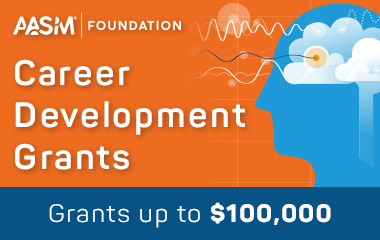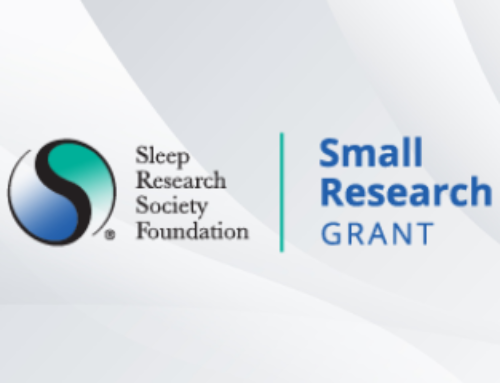We are delighted to announce our 2025 Career Development Grants for Cycle 1.
2025 Bridge to Success Grant for Early Career Investigators Recipient

Individuals with type 2 diabetes are at elevated cardiovascular risk, and behavioral–social rhythms may play a role. This project will assess how daily rhythm regularity and relationship quality impact glucose regulation and cardiovascular health in couples coping with diabetes. Data will be collected over 20 days using actigraphy, ecological momentary assessment, and continuous glucose monitoring. Findings will inform future dyadic interventions targeting sleep and social rhythm disruptions to reduce cardiometabolic risk.
2025 Physician Scientist Training Grant Recipients

Obstructive sleep apnea (OSA) contributes to cardiovascular disease, yet CPAP effectiveness varies widely across patients. This project applies causal machine learning to randomized trial and real-world data to identify which patients benefit most from CPAP therapy. The aim is to develop predictive models for personalized treatment strategies that optimize cardiovascular outcomes, advancing precision medicine approaches in sleep-disordered breathing.

Individuals with schizophrenia often experience disrupted sleep physiology linked to cognitive impairment. This project investigates whether high-definition transcranial direct current stimulation (HD-tDCS) during sleep can enhance slow-wave and spindle activity, and in turn, improve cognitive performance. Comparing effects in patients with schizophrenia and healthy controls, this study will explore the therapeutic potential of sleep-based brain stimulation.
2025 Diversity Supplement Grant Recipient

Sleep is characterized by a reduced response to external stimuli, but the underlying brain mechanisms remain unclear. This project will use larval zebrafish and whole-brain imaging to monitor neuronal activity in response to sensory stimuli during sleep and wakefulness. The goal is to identify neural pathways that suppress arousal during sleep, advancing understanding of how sleep states are regulated and how the brain maintains sensory disconnection during rest.
2025 Focused Projects Grant for Junior Investigators Recipients

Children with autism spectrum disorder experience sleep disturbances at disproportionately high rates, affecting overall development and family well-being. This project will adapt and evaluate a behavioral sleep intervention through a community-engaged approach to improve feasibility and acceptability. The pilot study will assess whether the adapted intervention improves sleep and daytime functioning in children and reduces caregiver stress, laying the groundwork for larger-scale trials of parent-mediated sleep interventions.
This grant was made possible by Madeleine Grigg-Damberger, MD.

REM sleep behavior disorder (RBD) can severely impact psychosocial and sleep functioning in veterans and their partners, yet behavioral treatments are limited. This project uses a mixed methods approach—including actigraphy, self-report measures, and interviews—to characterize the biopsychosocial burden of RBD. Findings will inform the development of a targeted behavioral intervention to address biopsychosocial consequences associated with RBD.






